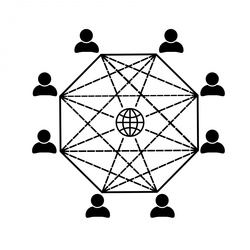Community is the Lifeblood of Freedom in the GNU/Linux World
THE GNU/Linux operating system was created in the 1980s by communities, for communities (even literal basement dwellers). The operating system became so robust and attractive that a trade group of corporate actors (mostly proprietary) formed malevolent fronts through which to promote toxic waste like Hyper-V and exFAT.
Owing to the GPL, the licence pioneered by GNU, the operating system remains Free software; we still see new community-centric distributions and they come into being all around the world. The operating system's template-like body has a new Achilles heel however; some components of it are too darn difficult to replace, and that's mostly by design. They try to impose TPMs and other user-hostile things on just about everybody. Removing or undoing the "cancerd" (systemd) is feasible but increasingly difficult. They won't stop there. The goal is to make a monolith.
The international (global) teamwork is essential towards ensuring that the system developed by hundreds of thousands of programmers remains free for everyone not only to use but also study, modify, and redistribute. IBM (of RHEL infamy) puts that at risk and the FSF has failed to issue any statement on this matter. █

